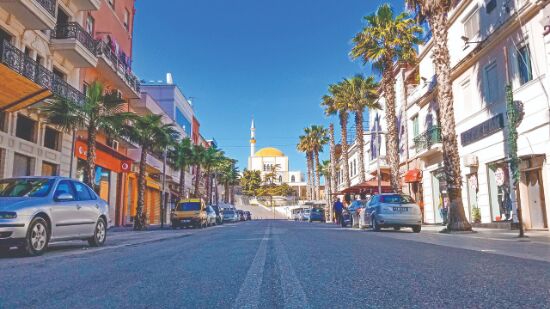Balkans feel abandoned as vaccinations kick off in Europe

Sarajevo (Bosnia-Herzegovina): When thousands of people across the European Union began rolling up their sleeves last month to get a Coronavirus vaccination shot, one corner of the continent was left behind, feeling isolated and abandoned: the Balkans.
Balkan nations have struggled to get access to COVID-19 vaccines from multiple companies and programs, but most of the nations on Europe's southeastern periphery are still waiting for their first vaccines to arrive, with no firm timeline for the start of their national inoculation drives.
What is already clear is that Albania, Bosnia, Kosovo, Montenegro, North Macedonia and Serbia home to some 20 million people will lag far behind the EU's 27 nations and Britain in efforts to reach heard immunity by quickly vaccinating a large share of their people.
North Macedonian epidemiologist Dragan Danilovski compared the current vaccine situation in the Western Balkans to the inequalities seen during the 1911 sinking of the Titanic.
The rich have grabbed all the available lifeboats, leaving the less fortunate behind, Danilovski told broadcaster TV 24.
Such sentiment as the world faces its gravest health crisis in a century has gained traction in the Western Balkans - a term used to identify the Balkan states which want to join but still are not part of the EU.
Many Balkan nations are pinning their hopes on COVAX, a global vaccine procurement agency set up by the World Health Organization and global charity groups to address rising inequities of vaccine distribution. COVAX has secured deals for several promising COVID-19 vaccines but, for now, it will only cover doses to inoculate 20 per cent of a country's population.
Alongside other politically unstable post-communist Balkan nations that have long professed their desire to join the EU but keep failing to fulfil conditions to achieve that goal, Bosnia has reserved vaccines through COVAX and expects to start receiving its first doses in April at the earliest. That seems like an eternity from now.
Serbia is the only Western Balkan nation to receive vaccine shots so far, getting deliveries from Pfizer-BioNTech and the Russian-developed Sputnik V vaccine. However, Serbia does not have enough doses to begin mass vaccinations, as only 25,000 shots of the Pfizer-BioNTech vaccine and 2,400 of the Russian vaccine have arrived.
Meanwhile, nearly two weeks after most other European Union nations, the Netherlands on Wednesday began its COVID-19 vaccination program, with nursing home staff and frontline workers in hospitals first in line for the shot.
Sanna Elkadiri, a nurse at a nursing home for people with dementia, was the first to receive a shot of the Pfizer-BioNTech vaccine at a mass vaccination center in Veghel, 120 kilometers (75 miles) southeast of the capital, Amsterdam.
The Dutch government has come under fierce criticism for its late start to vaccinations.
Prime Minister Mark Rutte told lawmakers in a debate Tuesday that authorities had focused preparations on the easy-to-handle vaccine made by Oxford University and AstraZeneca, which has not yet been cleared for use in the EU, and not the Pfizer-BioNTech vaccine.



